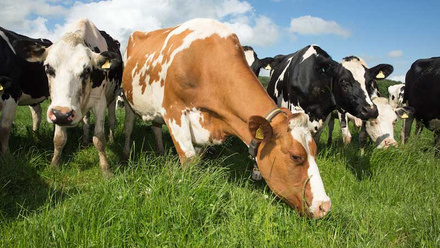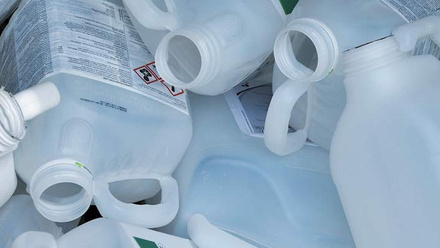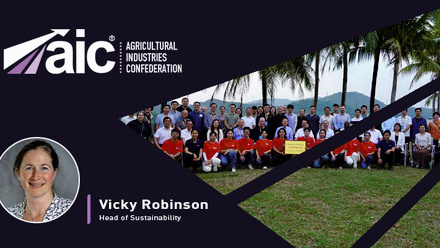AIC responds to organic farming campaign to reduce mineral fertiliser use
Agri-supply trade association the Agricultural Industries Confederation (AIC) has dismissed an organic farming campaign calling on the Government to set targets for reducing mineral fertiliser use.
Responding to the Soil Association's call for cuts in the use of non-organic fertilisers, Jo Gilbertson, AIC's Head of Fertiliser, said: "Mineral fertilisers play a critical role in food production as part of a range of necessary inputs, with these products supporting sustainable, resilient farm businesses.
"The evidence clearly shows that a large-scale shift to organic farming practices would mean increased atmospheric and water pollution caused by expanding cropping areas by as much as 200% to produce the same amount of food. This would also result in higher food costs and detrimentally impact the UK's food security.
"The fertiliser sector is continually innovating to decarbonise manufacturing processes. New products, such as green ammonia-based nitrogen fertilisers and other low-carbon footprint minerals, are also in development. In addition, farmers are being incentivised to look at their nutrient use efficiency.”
Find out more about AIC and the fertiliser sector by watching the video below.
Notes for editors
- Annual crop yields on organic farms are on average significantly lower, ranging between 40-85% of conventional farming yield.
- Organic farming will always require more land to produce the same amount of food, and research indicates that an additional 65% to 200% extra land is required. The largest source of greenhouse gas emissions from agriculture (as much as 47%) comes from the conversion of natural land into farmland. For an accurate representation, greenhouse gas emissions should be measured as emissions per tonne of food produced, rather than emissions per hectare.
- Studies have shown that a large-scale transition to organic farming would lead to cropland expansion, with the consequence of a net increase in greenhouse gas emissions. Expanded cropland areas would reduce areas of untouched nature, thereby threatening biodiversity.
About AIC
The Agricultural Industries Confederation (AIC) is the UK’s leading trade association, representing agricultural supply chain sectors including arable marketing, crop protection, agronomy, feed, fertiliser, and seed.
Formed in 2003, AIC has over 230 Members in the agri-supply trade which are responsible for £9 billion of annual farm trade.
AIC is marking 20 years as the leading voice of the UK agri-supply industry, working in support of modern, sustainable, commercial agriculture. Visit the website to find out more.
Political lobbying and policy influencing is a major part of its work, as well as supporting Members with technical information.
AIC Services, which is the professional services arm of the AIC, manages a range of services, including Assurance Schemes recognised by UK government as essential tools to underpin feed and food safety alongside fertiliser security. These include:
-
Feed Materials Assurance Scheme (FEMAS)
-
Feed Adviser Register (FAR)
-
Forage Assurance Scheme (FAA)
Visit the AIC website to find out more.
Press contact
Oli Hill, Communications Manager, AIC
+44 (0)1733 385230





